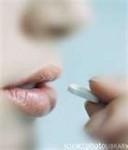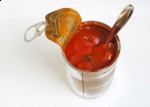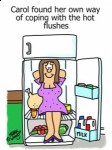 What’s new in hormone therapy today? For starters, the name HRT or Hormone Replacement Therapy is being substituted more with just the HT (hormone therapy) label. If you’ve found this confusing join the club. Maybe next it will be Health Therapy (HT)? Any name that is both benign and friendly seems to be a better way to present these drugs, right?
What’s new in hormone therapy today? For starters, the name HRT or Hormone Replacement Therapy is being substituted more with just the HT (hormone therapy) label. If you’ve found this confusing join the club. Maybe next it will be Health Therapy (HT)? Any name that is both benign and friendly seems to be a better way to present these drugs, right?
However, now even more new research is proving these drugs have dangerous side effects. There is nothing healthy or therapeutic about artificial hormones. There is more than abundant data on artificial HRT, hormone replacement therapy, and its connection to an increase risk of breast cancer and stroke. There are ongoing studies in other arenas like this one just published.
Hot off the press from Australia! This study concluded the longer a woman used HRT or HT or artificial hormones (call them whatever you wish) the higher her risk of developing high blood pressure.
The study, not small by any means, included 43,405 postmenopausal women and was led by Joanne Lind of the University of Western Sydney. Dr. Lind explained that the study shows that “longer use of menopausal hormone therapy is associated with having high blood pressure”.
If you are looking for a natural alternative for menopausal hot flashes and night sweats, learn why Chinese herbs are the first choice for millions of women around the world who want a safe natural alternative.
Hopefully this message will be conveyed to women who are considering using hormone therapy for menopause symptoms. Talk to your doctor if you have high blood pressure and are using and form of HRT or HT.
References:
http://www.plosone.org/article/info%3Adoi%2F10.1371%2Fjournal.pone.0040260
Citation: Chiu CL, Lujic S, Thornton C, O’Loughlin A, Makris A, et al. (2012) Menopausal Hormone Therapy Is Associated with Having High Blood Pressure in Postmenopausal Women: Observational Cohort Study. PLoS ONE 7(7): e40260. doi:10.1371/journal.pone.0040260




 Menopause symptoms such as hot flashes, night sweats, irritability, brain fog and other symptoms seem to be considered the norm for women over the age of 50, yet this is not true for women around the globe. Researchers from the Department of Integrated Health at Westminster University polled 1,000 British women ages 45 to 55 and compared their answers to those of women from the U.S., Canada, Japan and China. The conclusion was that Japanese and Chinese women suffer the least amount of menopause symptoms. British women suffer the most and Americans are somewhere in between.
Menopause symptoms such as hot flashes, night sweats, irritability, brain fog and other symptoms seem to be considered the norm for women over the age of 50, yet this is not true for women around the globe. Researchers from the Department of Integrated Health at Westminster University polled 1,000 British women ages 45 to 55 and compared their answers to those of women from the U.S., Canada, Japan and China. The conclusion was that Japanese and Chinese women suffer the least amount of menopause symptoms. British women suffer the most and Americans are somewhere in between.



